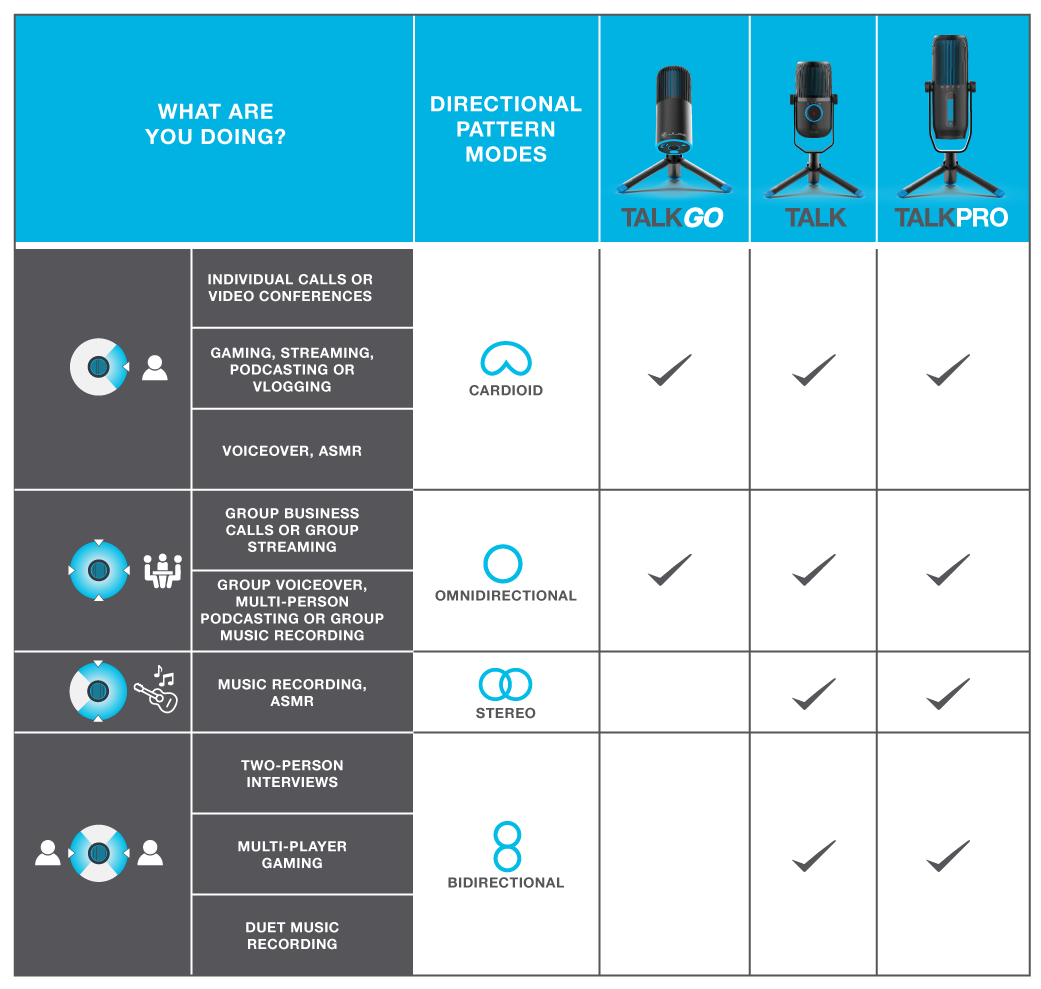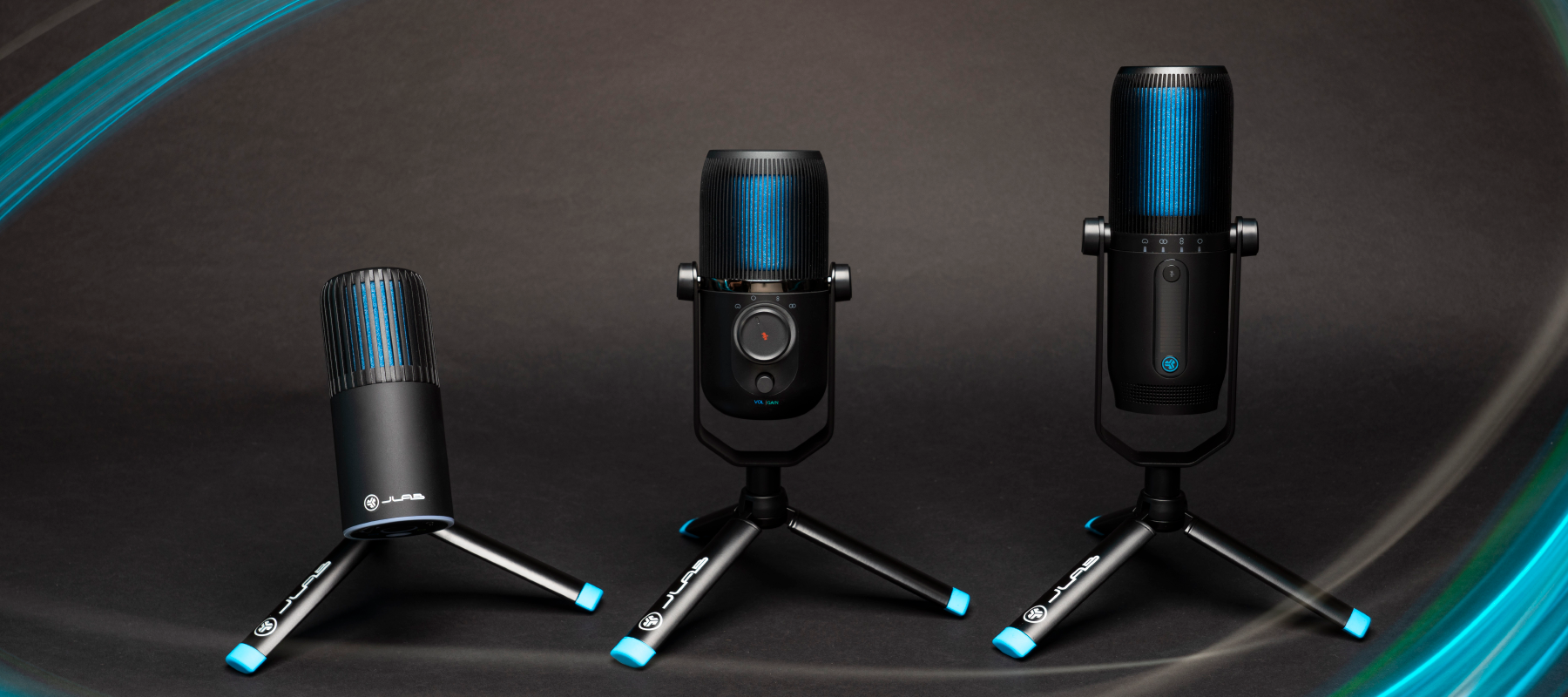Meet Talk Series USB Microhones, the newest part of the JLab Family. We decided to take it up a notch and expand our innovation-and-accessibility success in another category in audio devices.
If you are new to microphones or want to learn more, read our list of terms ranging from A-Z. You will become a pro in no time.
List of Microphone Terms A-Z
- Amplification: The microphone's sensitivity, whether the mixer it can be called head-amp or pre-amp.
- Amplitude: The loudness of a sound wave from the audio signal strength.
- Audio: Sound when it is recorded, transmitted, or reproduced.
- Bidirectional Polar Pattern: "Figure of Eight", Sound waves which are sensitive from the front and back of the microphone, not the side.
- Bit Depth: The resolution of the sound data that is captured and stored in an audio file.
- Cardioid Polar Pattern: Sound waves that are most sensitive from the front of the microphone.
- Condenser: The microphone’s capacitor that collects the sound and converts the sound waves to audio files.
- Directional Polar Patterns: The way the condenser faces in order to capture the best sound from the source. Different modes are better for specific uses.
- Gain Control: How loud the INPUT of the channel is. It controls the amplitude.
- Omnidirectional Polar Pattern: "Omni", is the microphone that has equal sensitivity from all directions of the microphone, while having a 360-Degree output.
- Quick Mute: An easy way to control your sound, when you want to mute your audio fast and easy with the button.
- Resolution: The microphone's digital recording resolution is the combination of Bit Depth and Sample Rate within the microphone.
- Sample Rate: The speed of capture and playback.
- Sensitivity: The microphone's sound pressure level and its diaphragm, given the directional polar patterns.
- Stereo Polar Pattern: The microphone is most sensitive with the left and right sides of the microphone.
- Sound Wave: A sound of compression from outside noises. In mics, the sound waves deliver a pressure to their sensitive sides causing a diaphragm for audio.
- Volume Control: How loud the OUTPUT of the channel is (loudness to you/the recorder).
Directional Polar Patterns Simplified:


